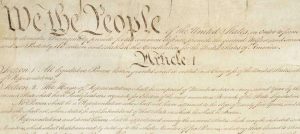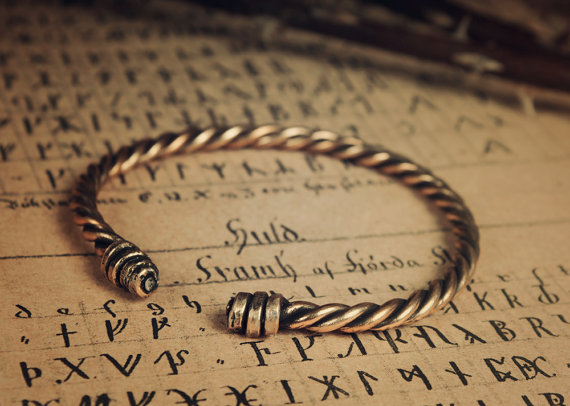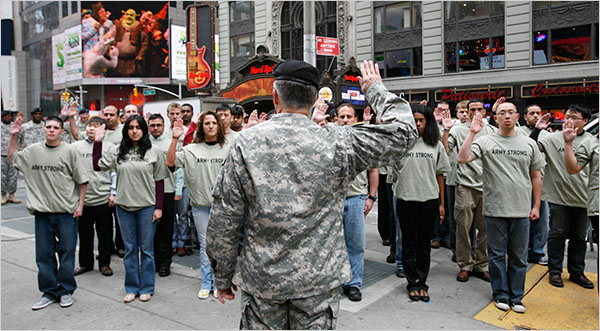The Oath
In the Heathen / Asatru belief there is no more sacred act than taking an Oath.

An oath once taken must be followed, and the letter of the oath is as important as the intent. Of such great importance was the oath that when sworn upon the sacred ring (or other sacred object), said Oath was made before all the Gods and upon the honor of the individual taking the oath. Below are a few select quotes from sources that show the power of the oath to the heathen worldview. There are hundreds more. The oath is one of the central elements of being a heathen. Yes, cultic thew may be different from tribe to tribe, but the importance of the oath and reciprocal gifting is central to all heathen religious practices.
“The actual oath that was sworn probably varied from person to person and from place to place. The oath binding a warrior to his lord was of supreme importance within the warrior’s life: “All oaths are important in heroic society, but most important and most binding is the oath of loyalty to one’s lord. This oath takes precedence over any oath which may conflict with it (Cherniss, p. 63).” – Viking Answer Lady
“The oath depends on exchange, a feature integral to both the pledge and the vow as well, to assure that any violations of the integrity of swearing receive an appropriate penalty. While monetary surety is frequently attached with the pledge or vow, the heightened religious nature of the oath requires collateral of a higher value, most commonly including intangible aspects such as spiritual wellbeing and social reputation.” Bound By Words
“The relationship between the Icelandic and Anglo-Saxon terminology suggests that both cultures valued the oath for its ability to convey the truth with an appropriate level of solemnity and authority. The deeply religious bonds created by the eiðr, just as with the áþ, are symbolically expressed during swearing by the individual connecting with the religiously significant objects, especially relics, used within this process.” Bound By Words
“It is argued here that eddic poetry, where oaths were sworn on items like rings and weapons, can provide insight into practices of swearing oaths in the real world of the Vikings. It is problematic that the earliest surviving manuscripts of the eddic poems date from the late 13th century, but other sources, including written sources from outside Scandinavia, evidence the existence of such oaths. The workings of the oaths rested on beliefs that the gods, and the items invoked in the process, would take vengeance on oath-breakers.” Performing Oaths
It is the belief of the leaders of the OHP that before all requests are made that may conflict with a sense of good order or military discipline, that service members must adhere to their sacred Oath. It is our understanding of Heathen theology that upholds this belief. In a Heathen context, The Constitution is the binding force for one’s oath. The Constitution takes the place of one’s Lord in an arch-heathen sense. The Officers appointed above you are the equivalent of Thanes and other leaders. We must adhere to military law or face the consequences of our actions, both spiritually and physically.

In a Heathen context, oaths are also important to how and when they are taken. The Oath of Enlistment comes first for many, and should. Pre-Existing tribal oaths may exist for an individual. If so, that person must seriously consider if they will forgo that oath to enlist or become an officer, and if so, what impact that will have on them. Sikhs have had to commit a form of religious sin to join the US Military when they are forced to shave. That is because of their preexisting oaths. We have sympathy for that rock and hard place they are stuck between. But, it is not the same for most Heathens. Most Heathens do not have a tribal thew that requires a beard. Most Heathens do not have a pre-existing oath that they are breaking to keep a beard, prior to joining the military.
We do believe that there are legitimate accommodations that Heathens can request that we would support. This includes, but is not limited to, requests for mead during a deployment ritual, the right to have a copy of any works from the Poetic Edda, time off to attend blot or other heathen festivals and rituals, and the right to have worship spaces set aside on Post/Base for religious events. These are things that do not conflict with the oath and regulations one takes to become a member of the US Armed Services.
We remind our Heathen service members to reflect deeply upon the following, before making personal or group requests.
I, _____, do solemnly swear (or affirm) that I will support and defend the Constitution of the United States against all enemies, foreign and domestic; that I will bear true faith and allegiance to the same; and that I will obey the orders of the President of the United States and the orders of the officers appointed over me, according to regulations and the Uniform Code of Military Justice. So help me God.” (Title 10, US Code; Act of 5 May 1960 replacing the wording first adopted in 1789, with amendment effective 5 October 1962).
Department of Defense Instruction (DoDI) 1300.17, Accommodation of Religious Practices Within the Military Services.
10 Februrary 2009 [Updated 22 January 2014]
Primary document guiding all military services in their interactions with religion.
Of note, from paragraph 4.b:
“Unless it could have an adverse impact on military readiness, unit cohesion, and good order and discipline, the Military Departments will accommodate individual expressions of sincerely held beliefs (conscience, moral principles, or religious beliefs) of Service members in accordance with the policies and procedures in this instruction.”
Daron Regan and Joshua Heath


